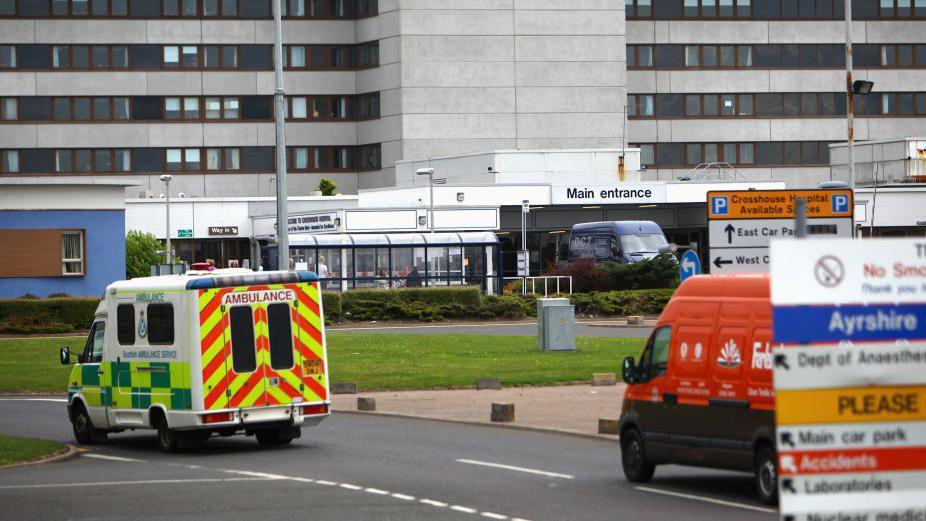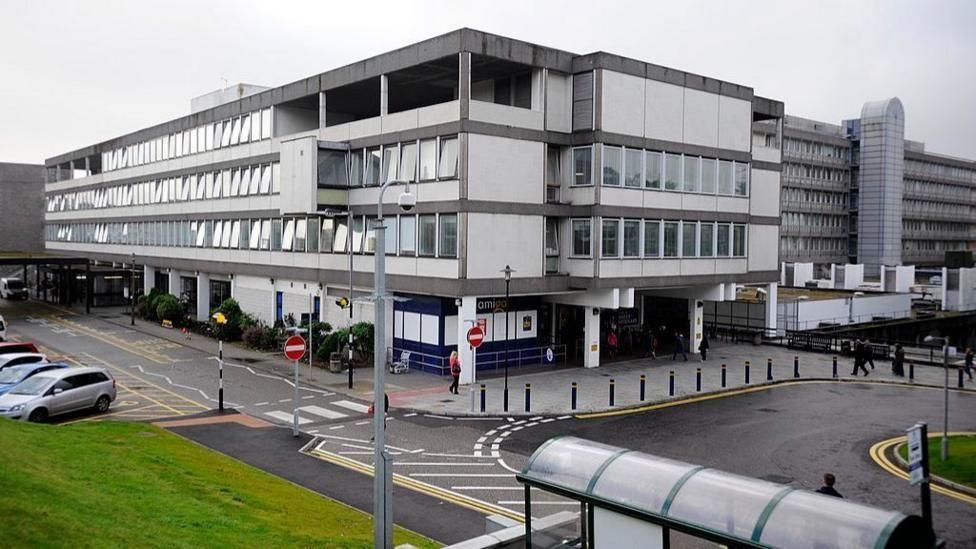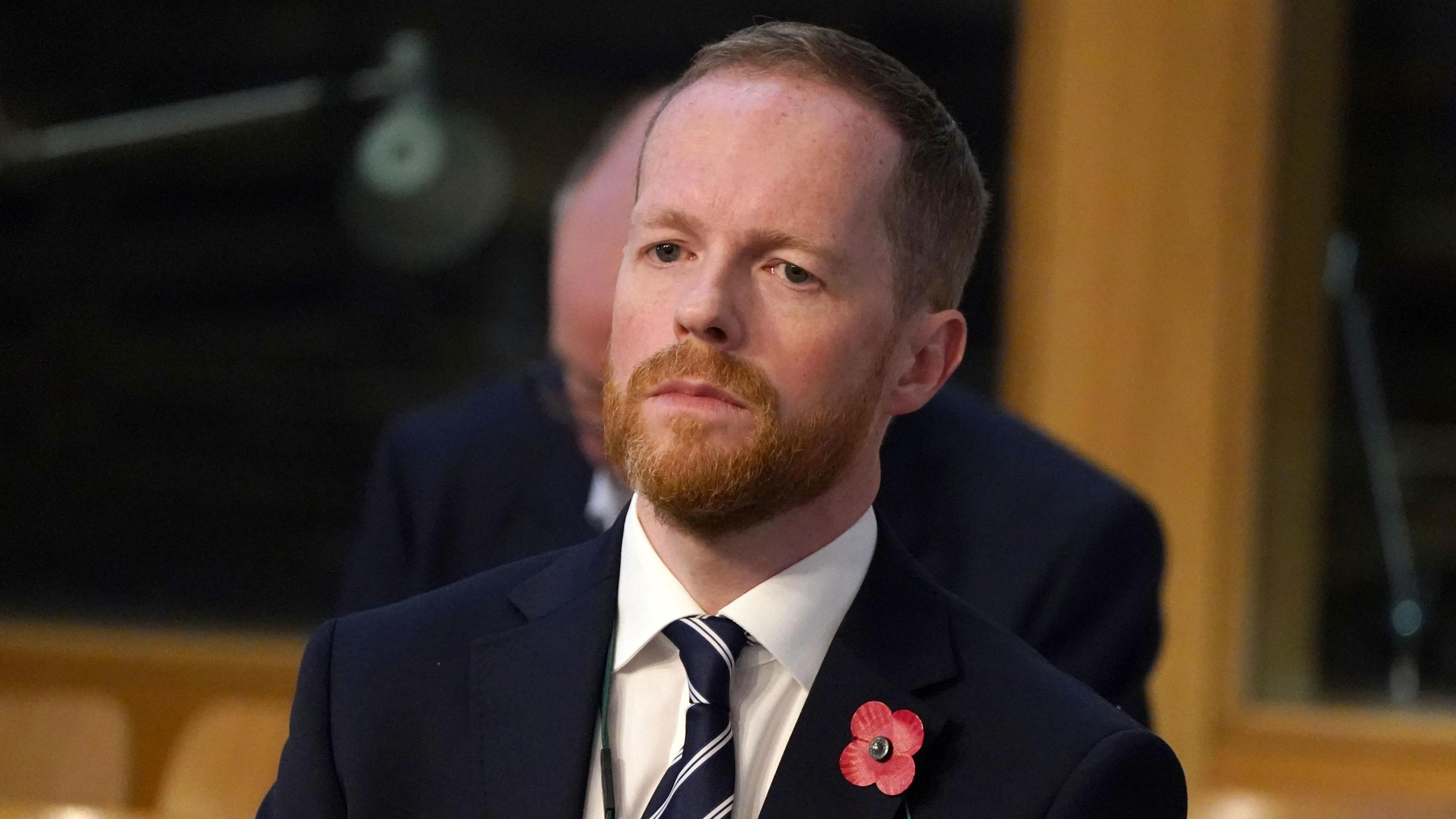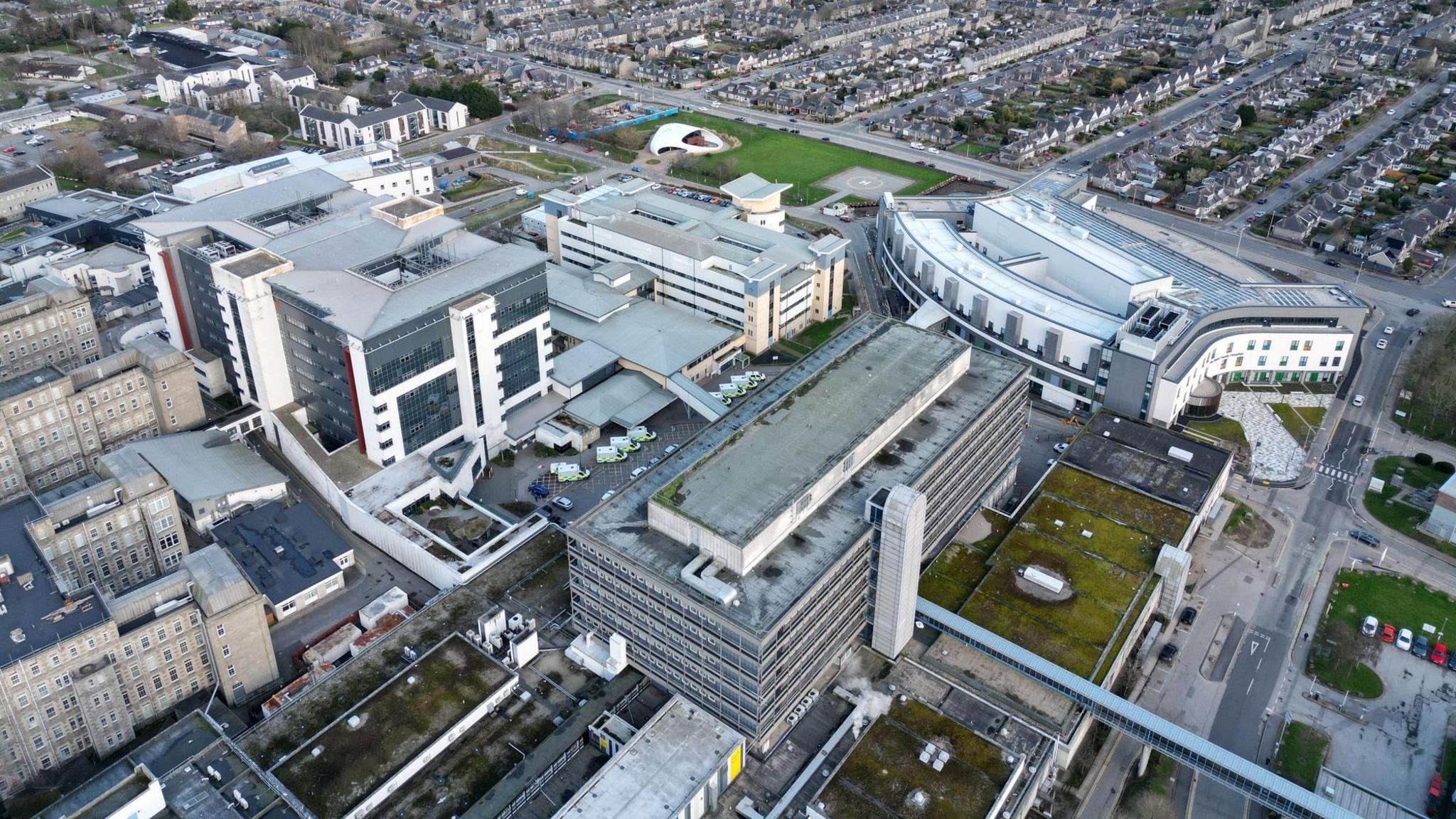Health board facing 'unprecedented' financial challenges, auditors warn

One report warns of the challenges facing NHS Ayshire and Arran
- Published
One Scottish health board faces "unprecedented" financial challenges and another must redesign its health and social care system to balance the books, auditors have said.
Auditor General Stephen Boyle said there was "no evidence that NHS Ayrshire and Arran can achieve financial sustainability" after it needed a £51.4m loan in 2024/25 to break even.
His report said the health board was facing a deficit of £33.1m this year and does not have a clear plan for achieving financial sustainability.
A separate report on NHS Grampian, external warned that a return to financial balance is unlikely without "a significant redesign" of its health and social care system.
NHS Ayrshire and Arran has outstanding loans totalling £129.9m, the highest amount across the NHS in Scotland. It also overspent by £14m on temporary staff.
Mr Boyle said the severity of the financial challenge facing the board was "unprecedented" and warned that it was relying on "overly optimistic savings plans that may not be achievable".

NHS Grampian has been told to agree a financial recovery plan as soon as possible
The report found the health board - which employs about 9000 staff - relied on non-recurring savings in 2024/25, which has only increased future financial pressures.
The auditors said the board's prediction that it would would achieve recurring savings of 3% each year until 2027/28 was an "optimistic assumption", and that performance against the current delivery plan is behind target.
The Scottish government had rejected NHS Ayrshire & Arran's proposed savings plan on the grounds that the forecast for 2025/26 did not demonstrate "sufficient improvement" in the board's financial position.
It was told to submit an updated plan in June this year - but that date passed without the external auditor seeing it.
The Audit Scotland report, external says the board continues to rely on temporary staffing at a high cost, and that performance against national waiting time standards is mixed.
It highlighted that 65.7% of A&E attendees were admitted, transferred or discharged within four hours - well below the national 95% standard.

Auditor General Stephen Boyle said NHS Ayrshire & Arran's plans were unlikely to work
The health board has been struggling since 2018, when it was placed on level 3 of the five stage NHS in Scotland Support and Intervention Framework because of its financial position – a stage which requires increased oversight and support from the Scottish government.
As part of this, the Scottish government asked the board to create a financial recovery plan setting out a five-year path to balance – however the report found that the board has "not yet prepared sufficiently detailed plans to show how it will achieve financial sustainability".
The board aim to achieve recurring savings of 3% each year until 2027/28, with forecast deficits continuing to be funded by the Scottish government.
These are "unlikely to be achieved", with the plans including a £2.1m cut to the nursing workforce and millions of savings through redesigning other services.
Changes at NHS Ayrshire & Arran
In the summer chief executive Claire Burden was announced as taking an extended leave of absence, followed by Professor Gordon James taking over as interim chief executive, external.
The report said he and the board need to set out a realistic recovery plan to address the forecast deficit for 2025/26 "as a matter of urgency".
Professor James said the report would provide "a valuable opportunity to reflect and improve", and that the health board was committed to delivering a plan that would improve its financial situation.
NHS Grampian financial concerns
The report on NHS Grampian said its cost base was "unsustainable for future operations based on current funding levels".
The health board was escalated to stage four of the NHS Scotland framework, external earlier this year, amid concerns over its financial stability, leadership and governance.
The new audit report said: "The move to stage four highlights the significant financial pressures on the board and the significant challenge it will face to bridge the financial gap over the medium term.
"NHS Grampian should agree a financial recovery plan as soon as possible and clearly set out how the board intends to return to financial balance."
It added that it will not be possible for the health board to return to financial balance without "a significant redesign of its health and social care system and/or obtaining fundamental changes in the funding model".
Earlier this year NHS Grampian was given a a Scottish government loan of more than £67m to tackle its overspend.
The report cautioned that although NHS Grampian have a track record of delivering significant savings, it may not be sustainable in the future.

Laura Skaife-Knight recently took over as NHS Grampian chief executive
Laura Skaife-Knight, the recently-appointed NHS Grampian chief executive, said the report was a "constructive way to reflect on our challenges".
She added: "We're developing an improvement plan in close collaboration with our staff and partners, building on work already under way, recognising this is how we will meet the challenges we face and that lie ahead.
"This improvement plan will come to our public board meeting in December 2025 for approval, for transparency, and regular progress updates will be shared with our community, partners and staff."
Scottish Conservatives health spokesman Dr Sandesh Gulhane said the reports were symptomatic of problems facing the NHS across Scotland.
He said: "It's appalling that health boards have been driven into crippling debt and are reliant on huge bailouts just to stay afloat.
"Grampian and Ayrshire & Arran are just the most extreme examples of a crisis facing all our health boards."
Dr Gulhane also called on the SNP government to cut red tape and middle managers from the health service to free up funding for frontline medics.
Scottish Labour Health spokesperson Jackie Baillie said "greater leadership" was needed from the government.
She added: "This stark report shows multiple health boards in Scotland are at crisis point.
"While the root causes of these pressures will vary, the risks for patients and staff are the same."

Health boards have to grapple with multiple financial challenges each year.
Allocated a share of the overall health budget by the government, they then have to meet their own wage bills, maintenance costs, growing medicines bills.
In some parts of Scotland there are particular challenges - the difficulty attracting permanent staff to rural areas can mean an over-reliance on expensive agency workers, for example.
The recent pay deal for nurses, paramedics and other healthcare workers included a reduction in hours worked each week. That has led to health boards having to absorb the costs of taking on additional staff to cover shifts.
There are clearly other factors at play here, with decisions taken on how each health board prioritises and delivers services, but it is becoming increasingly difficult for them to balance their books.
In 2023, five health boards required loans from the Scottish government to break even and last year it went up to eight, with today's reports a stark warning of just how perilous the finances of some are.
Audit Scotland has long been warning that the whole of the NHS in Scotland is financially unsustainable without a major rethink on what is affordable and what is not.
Related topics
- Published9 October

- Published3 October

- Published12 August
